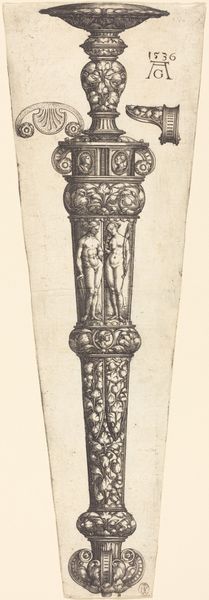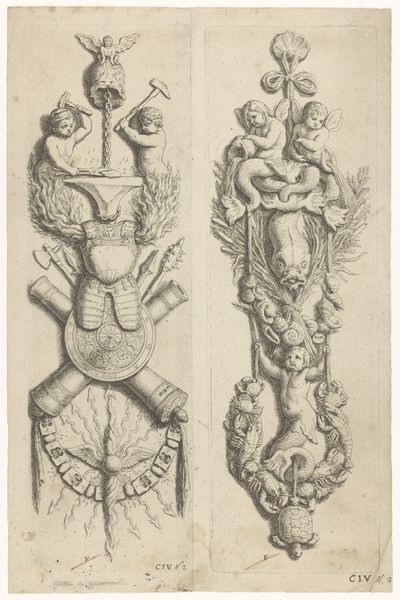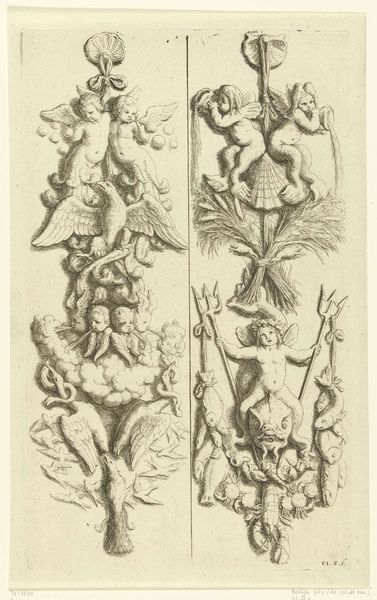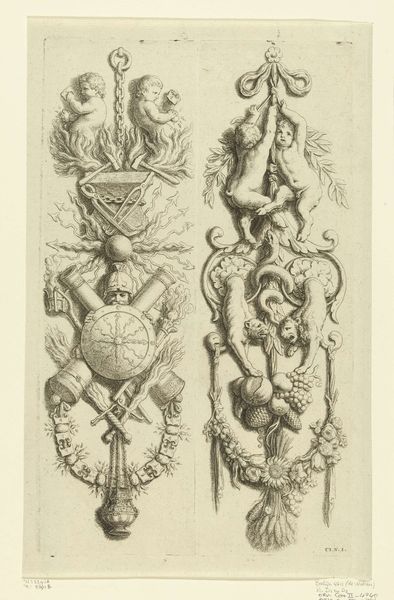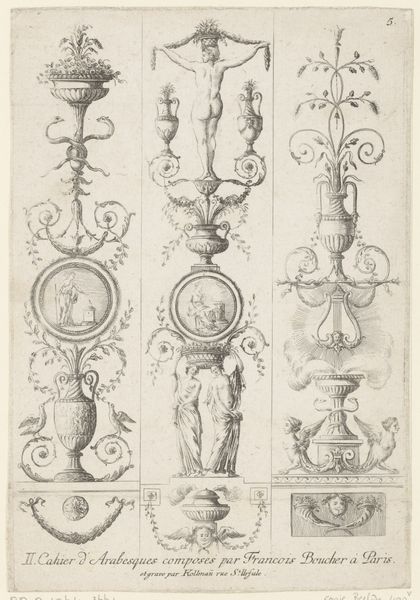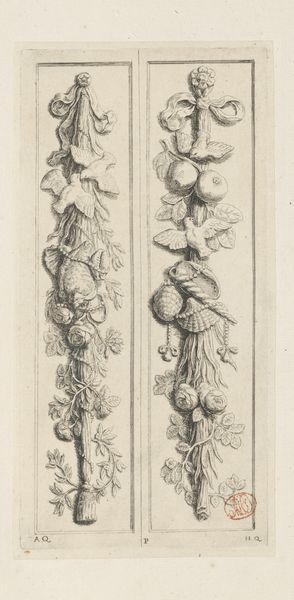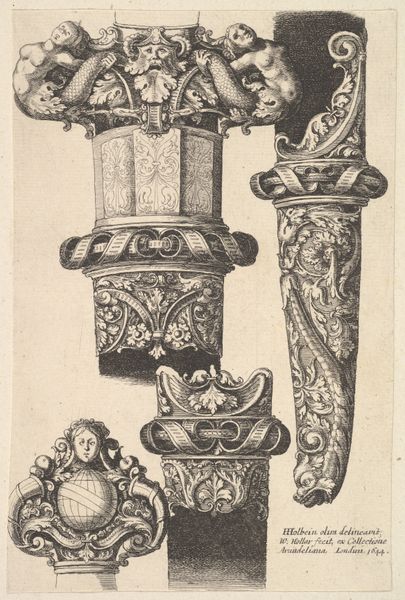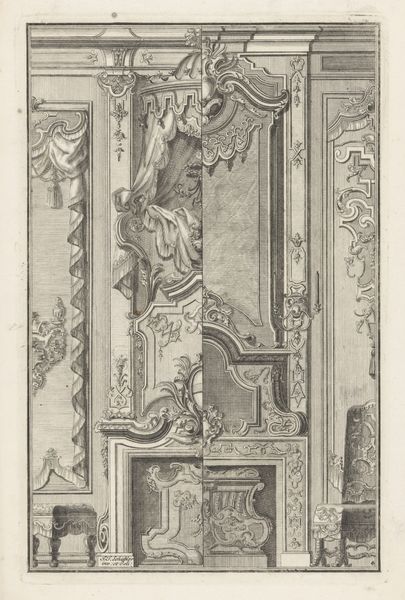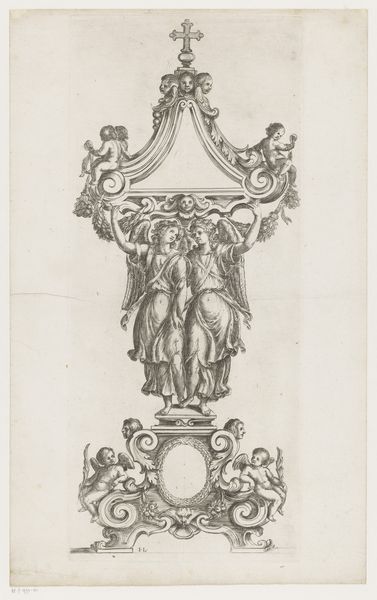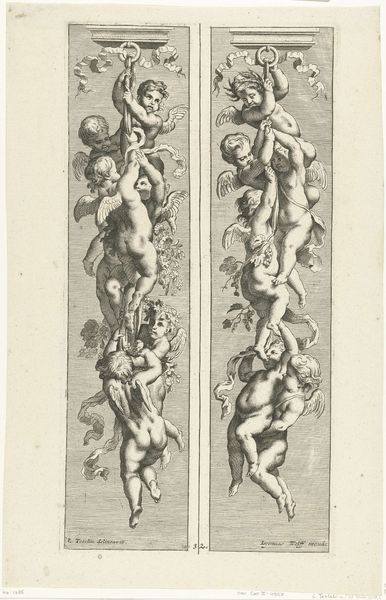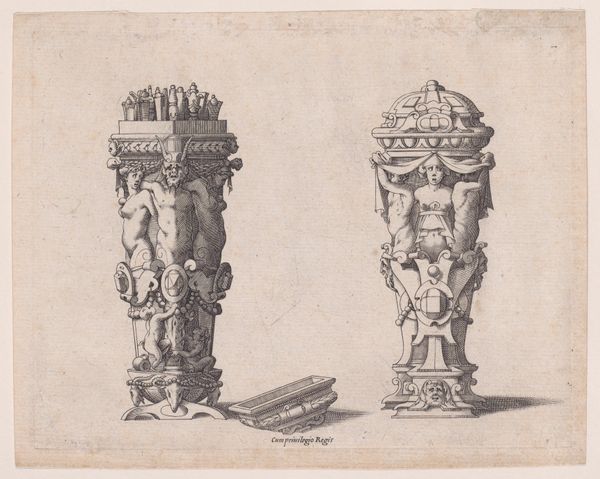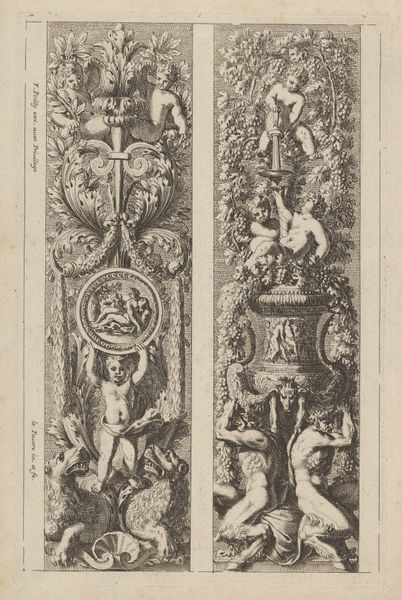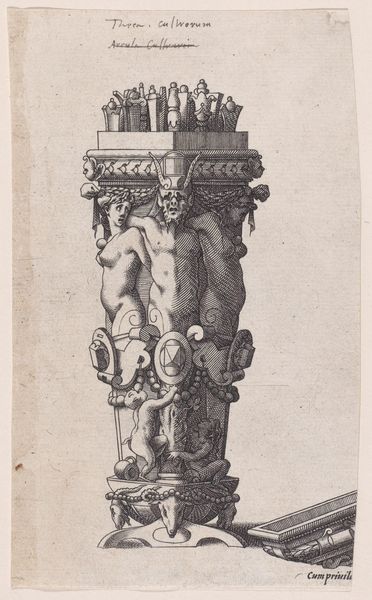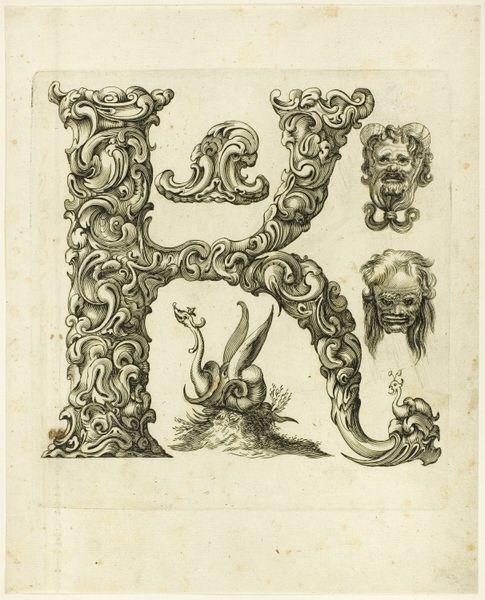
drawing, pen, architecture
#
drawing
#
baroque
#
pencil sketch
#
old engraving style
#
figuration
#
pen
#
architecture
Dimensions: height 300 mm, width 200 mm
Copyright: Rijks Museum: Open Domain
This anonymous drawing features caryatids, terms, pilasters, and a monster. The use of human figures as architectural support, such as we see here, hearkens back to ancient Greece. The term, with its human upper body transitioning into a pillar, echoes the archaic god Hermes, a liminal deity associated with boundaries and transitions. Observe how these motifs recur across centuries. Figures like these appear in Roman friezes, Renaissance facades, and even later in Art Nouveau designs, each time shifting in nuance. For instance, the grotesque mask at the bottom right, a relic of theatrical traditions, serves as a reminder of drama and disguise. Consider the psychological weight: these images, passed down through generations, tap into deep-seated fears and desires. The monster, for example, is a visual representation of the unknown, the chaotic, yet it is tamed, serving a structural function. These symbols evolve, yet their essence remains, engaging us on a visceral, subconscious level. This reflects a cyclical, non-linear journey through art history, continually reshaping cultural memory.
Comments
No comments
Be the first to comment and join the conversation on the ultimate creative platform.
